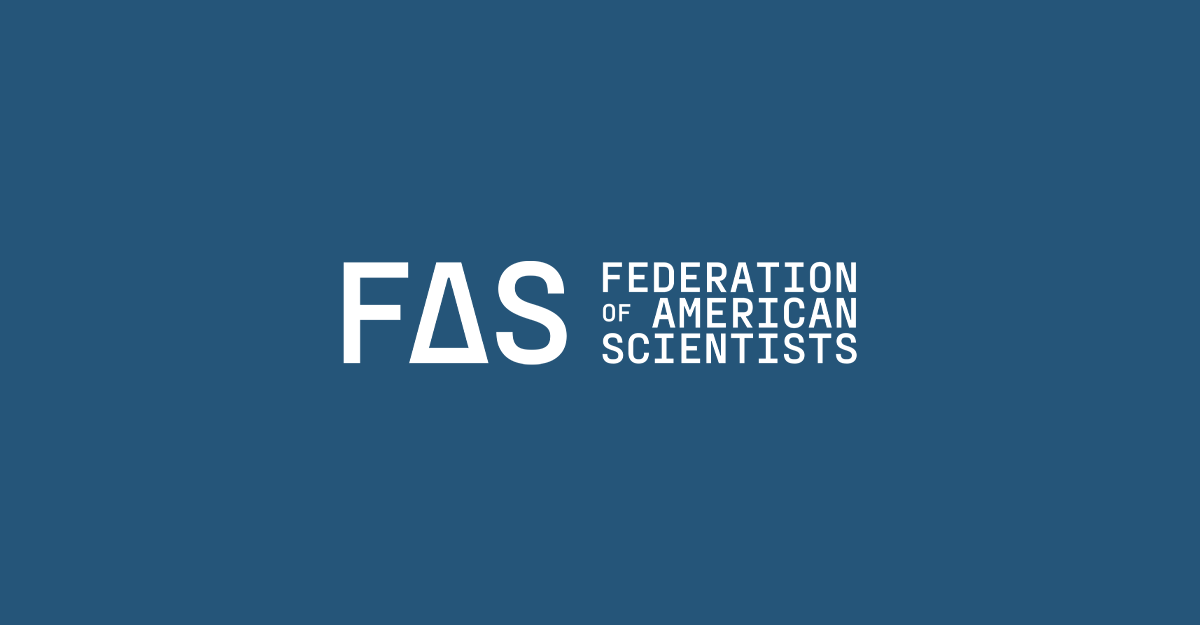
Federation of American Scientists Releases Latest India Edition of Nuclear Notebook
Washington, D.C. – September 6, 2024 – The Federation of American Scientists today released the latest India edition of the Nuclear Notebook, published in the Bulletin of the Atomic Scientists and available here. The authors, Hans Kristensen, Matt Korda, Eliana Johns, and Mackenzie Knight, estimate that India has produced enough weapons-grade plutonium for up to 210 nuclear warheads but has likely assembled closer to 172. Along with its growing arsenal, India is developing at least five new weapon systems and several new delivery platforms. Seeking to address security concerns with both Pakistan and China, India appears to be taking steps to increase the readiness of its arsenal, including “pre-mating” some of its warheads with missiles in canisters.
SSBNs and MIRVs
This Nuclear Notebook provides an overview of India’s nuclear modernization, documenting the development of new land and sea-based missiles, the retirement of older nuclear-capable systems, and the commissioning of India’s second indigenous nuclear-powered ballistic missile submarine (SSBN). The authors also analyze India’s significant progress in developing its next generation of land-based missiles with the capability to launch multiple independently targetable reentry vehicles (MIRVs).
###
ABOUT THE NUCLEAR NOTEBOOK
The FAS Nuclear Notebook, co-authored by Hans M. Kristensen, Matt Korda, Eliana Johns, and Mackenzie Knight, is published bi-monthly in the Bulletin of the Atomic Scientists. The joint publication began in 1987. FAS, formed in 1945 by the scientists who developed the nuclear weapon, has worked since to increase nuclear transparency, reduce nuclear risks, and advocate for responsible reductions of nuclear arsenals and the role of nuclear weapons in national security.
This latest issue follows the release of the 2024 North Korea Nuclear Notebook. The next issue will focus on the United Kingdom. More research is located at FAS’s Nuclear Information Project.
The Federation of American Scientists’ work on nuclear transparency would not be possible without generous support from the Carnegie Corporation of New York, Longview Philanthropy, the Jubitz Foundation, the New-Land Foundation, Ploughshares, the Prospect Hill Foundation, and individual donors.
ABOUT FAS
The Federation of American Scientists (FAS) works to advance progress on a broad suite of contemporary issues where science, technology, and innovation policy can deliver dramatic progress, and seeks to ensure that scientific and technical expertise have a seat at the policymaking table. Established in 1945 by scientists in response to the atomic bomb, FAS continues to work on behalf of a safer, more equitable, and more peaceful world. More information at fas.org.
The FY2026 National Defense Authorization Act (NDAA) paints a picture of a Congress that is working to both protect and accelerate nuclear modernization programs while simultaneously lacking trust in the Pentagon and the Department of Energy to execute them.
While advanced Chinese language proficiency and cultural familiarity remain irreplaceable skills, they are neither necessary nor sufficient for successful open-source analysis on China’s nuclear forces.
Satellite imagery has long served as a tool for observing on-the-ground activity worldwide, and offers especially valuable insights into the operation, development, and physical features related to nuclear technology.
This report outlines a framework relying on “Cooperative Technical Means” for effective arms control verification based on remote sensing, avoiding on-site inspections but maintaining a level of transparency that allows for immediate detection of changes in nuclear posture or a significant build-up above agreed limits.